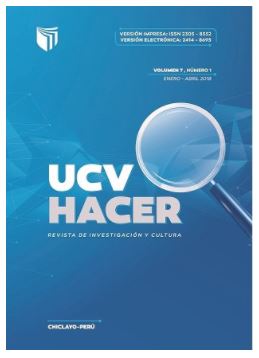The teacher as manager of socio-educational didactic processes: one family - one university
DOI:
https://doi.org/10.18050/RevUCVHACER.v9n3a8Keywords:
Manager of didactic processes, Socio-educational, Family, UniversityAbstract
This research emerges impregnated with a deep halo of complexity, which seeks to rethink the work of educational organizations in times of crisis under a hegemonic vision of education and of life itself. It starts from a conception of education as a training activity, permanent, with meaning, transcendental to the current situation of being, according to Balza (2008), an education "that permeates and models the multidimensionality of the human being", therefore that this is conceived in an integral way, as a whole that is nourished by the concurrence and contributions of the sociocultural and socio-pluricultural disciplines, therefore, transdisciplinarity, according to Nicolescu (1996), is to understand the unreality of reality from the unity of knowledge. However, the inter-problematic most felt in this context is directly associated with the teacher as a manager of processes, to mediate in the construction of a family - a university. The methodology is based on the qualitative paradigm of a comprehensive nature, under a phenomenological perspective based on the hermeneutical method, and documentary review and unstructured interview will be used as techniques. To compile the information, 4 teachers from different states of the Nation will be selected. The information will be recorded in descriptive matrices to proceed to its respective categorization and carry out the analysis that will later lead to the hermeneutical interpretation of unreality to reality. The results yielded will finally allow grounded theorizing, in order to generate a theoretical corpus as a new knowledge.
Downloads
Published
How to Cite
Issue
Section
License

This work is licensed under a Creative Commons Attribution-NonCommercial-ShareAlike 4.0 International License.










